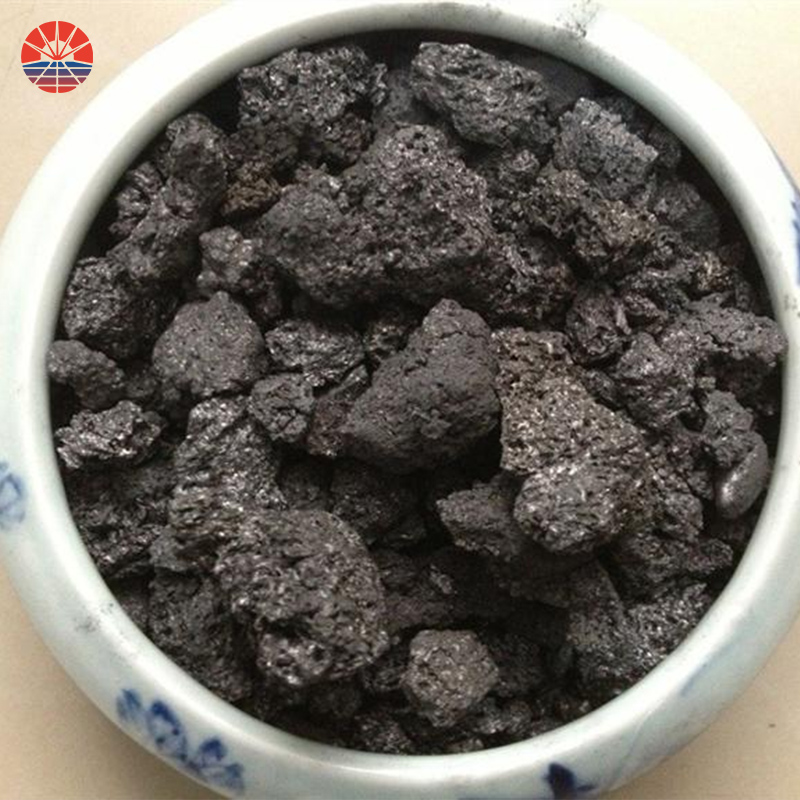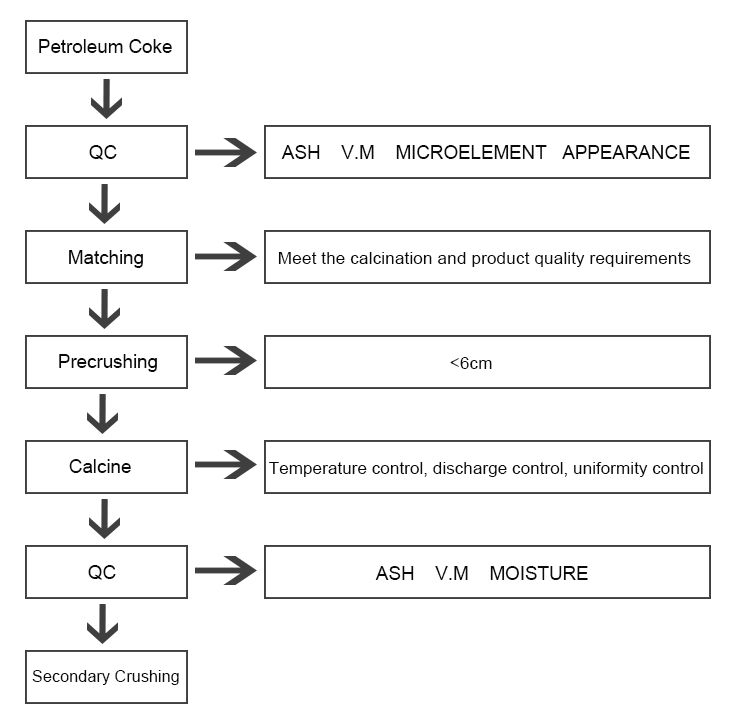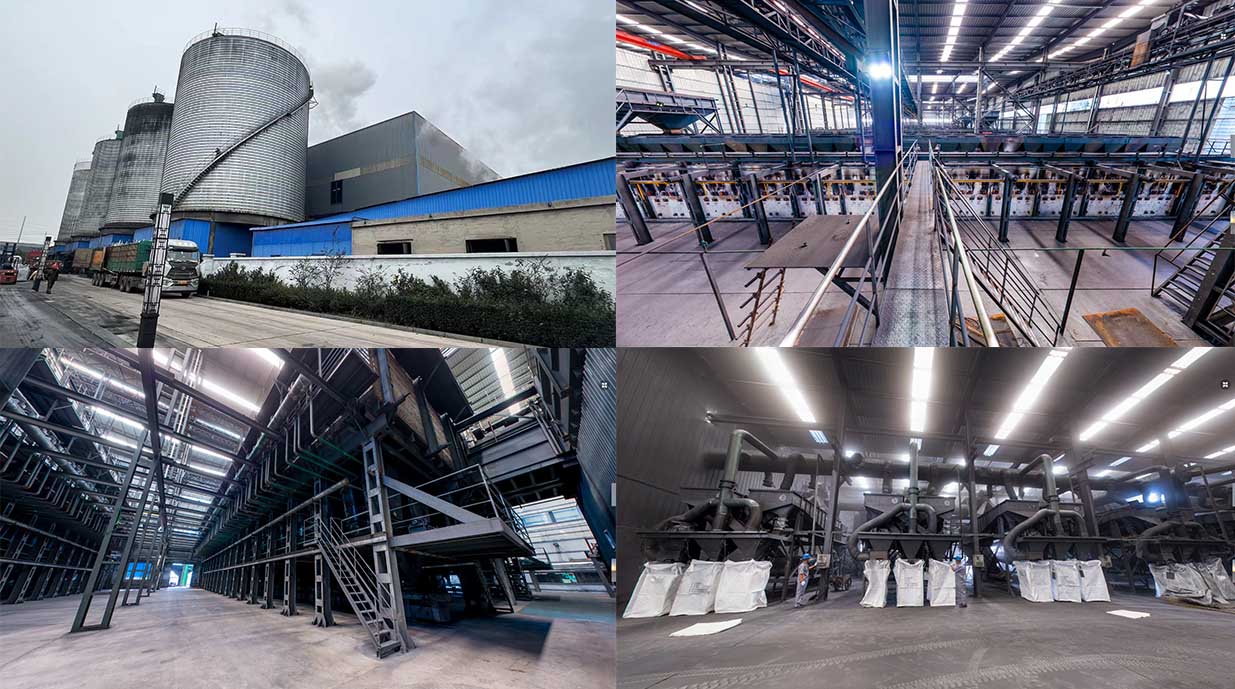Classification Of Calcined Coke
Calcined coke, also known as petroleum coke, has diverse applications in various fields. Here are some common applications of calcined coke:
Aluminum Production: Calcined coke is a key ingredient in the production of carbon anodes used in the electrolytic process of aluminum smelting. The carbon anodes, along with alumina (aluminum oxide), are essential for the electrolysis of alumina to produce molten aluminum.
Steel Production: Calcined coke is used in the manufacturing of carbon electrodes for electric arc furnaces used in steel production. Carbon electrodes play a crucial role in the smelting process by conducting electricity and generating the high temperatures necessary for the steelmaking process.
Carbon Products: Calcined coke is used as a raw material in the production of various carbon-based products. It serves as a precursor in the manufacturing of graphite electrodes, which are used in electric arc furnaces, as well as in the production of graphite blocks, brushes, and other carbon products.
Fuel Source: Due to its high carbon content and calorific value, calcined coke is utilized as a fuel source in several industries. It is commonly used in power generation, cement kilns, and other heat-intensive processes where a high-energy fuel is required.
Chemical Industry: Calcined coke finds applications in the chemical industry as a carbon additive or filler material. It is used in the production of carbon electrodes for batteries, carbon brushes, and as a raw material in the manufacturing of certain chemicals and dyes.
Foundry Industry: Calcined coke is used in the foundry industry as a carbon additive in the production of cast iron and steel. It helps improve the quality and properties of the final castings by enhancing the carbon content and reducing impurities.
Refractories: Calcined coke is sometimes incorporated into refractory materials, which are heat-resistant materials used in high-temperature applications. The addition of calcined coke can enhance the strength, thermal stability, and resistance to corrosion of refractory products.
These are just a few examples of the wide range of applications for calcined coke. Its high carbon content and desirable properties make it a valuable raw material in several industries that rely on carbon-based materials and processes.
Advantage to using Calcined Petroleum Coke in prebaked anode
Calcined coke is a crucial material used in the production of aluminum, primarily in the smelting process. It is produced by heating raw petroleum coke at high temperatures to remove impurities and volatile matter. Here are some of the key benefits of using calcined coke in aluminum production:
Electrical conductivity: Calcined coke has excellent electrical conductivity, making it an ideal material for the production of anodes used in the aluminum smelting process. Anodes are consumed during the process and are responsible for passing electrical current through the electrolytic cells, where aluminum is extracted from alumina. High electrical conductivity ensures efficient and cost-effective aluminum production.
High carbon content: Calcined coke typically has a high carbon content, which is necessary for the anode to function effectively. The carbon in the anode reacts with oxygen at the anode surface, forming carbon dioxide gas, and releases electrons that contribute to the reduction of alumina (Al2O3) into aluminum metal.
Low impurity levels: Calcination of coke removes volatile components and impurities, resulting in a product with low sulfur, ash, and moisture content. Low impurity levels are essential to maintain the purity of the aluminum produced and reduce the risk of impurities affecting the final product's quality.
Controlled particle size: The manufacturing process allows for the production of calcined coke with controlled and consistent particle sizes. This uniformity is essential for maintaining consistent and predictable anode performance during the smelting process.
Cost-effectiveness: Calcined coke is relatively inexpensive compared to other carbon-based materials used in aluminum production, making it a cost-effective choice for anode production.
Longevity: Anodes made from calcined coke have good structural integrity and can withstand the harsh conditions inside the aluminum smelting cell. They have a longer operational life compared to some other carbon materials, reducing downtime and replacement costs.
Environmental benefits: The use of calcined coke in aluminum production can lead to a reduction in greenhouse gas emissions. During the smelting process, the carbon dioxide released at the anode surface is partially reabsorbed in the alumina bath, reducing the overall carbon footprint of the aluminum production process.
In summary, calcined coke is a critical material in the aluminum smelting process due to its high electrical conductivity, low impurity levels, cost-effectiveness, and environmental benefits. Its use in anode production ensures efficient aluminum production and contributes to the overall sustainability of the aluminum industry.










